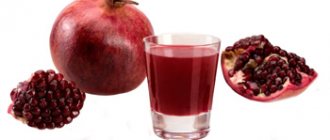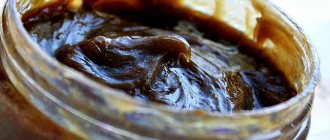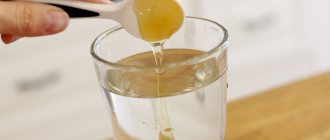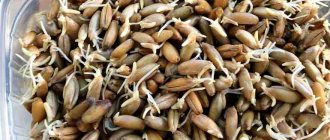However, some scientists and health experts are concerned that this sweet drink could be harmful to your health.
This article discusses the benefits and harms of orange juice for the human body.
Orange juice - benefits and harm for the body of women and men
From the garden to your glass
Most store-bought orange juices are not made by simply squeezing freshly picked oranges and pouring the juice into bottles or cartons.
Rather, they are produced through a multi-step, highly controlled process, and the juice can be stored in large tanks for up to a year before being packaged.
First, the oranges are washed and squeezed using a special machine. The pulp and oils are removed. The juice is heat pasteurized to inactivate enzymes and kill microbes that could otherwise spoil the product (1, 2, 3).
Some of the oxygen is then removed, which helps reduce oxidative damage to vitamin C during storage. The juice, stored as a frozen concentrate, is evaporated to remove most of the water (4).
Unfortunately, these processes also remove compounds that provide aroma and flavor. Some of them are later added back to the juice (5).
Finally, juice from oranges harvested at different times can be mixed before packaging to minimize differences in quality. The pulp, which is further processed after extraction, is added back to some juices (1).
Summary:
Store-bought orange juice is not a simple product like freshly squeezed orange juice. It goes through complex, multi-step processing and can be stored in large tanks for up to a year before being packaged for sale in stores.
Orange juice and whole oranges – which is better?
Orange juice and whole oranges are similar in nutritional value, but there are some important differences.
Specifically, compared to a whole orange, a serving of orange juice contains significantly less fiber and about twice as many calories and carbohydrates, which are mostly fruit sugar.
Here's a closer look at the nutritional content and composition of one cup (240 ml) of orange juice compared to the average orange (131 grams) that counts as one serving (as a % of the recommended daily intake (RDI)) (6, 7, 8) :
| Orange juice (store-bought) | Fresh orange | |
| Calorie content | 110 kcal | 62 kcal |
| Fats | 0 grams | 0 grams |
| Carbohydrates | 25.5 grams | 15 grams |
| Cellulose | 0.5 grams | 3 grams |
| Protein | 2 grams | 1 gram |
| Vitamin A | 4% of RUS | 6% of RUS |
| Vitamin C | 137% of RUS | 116% of RUS |
| Thiamine | 18% of RUS | 8% of RUS |
| Vitamin B6 | 7% of RUS | 4% of RUS |
| Folate | 11% of RUS | 10% of RUS |
| Calcium | 2% of RUS | 5% of RUS |
| Magnesium | 7% of RUS | 3% of RUS |
| Potassium | 14% of RUS | 7% of RUS |
As you can see, whole oranges and juice contain the same nutrients, but in different amounts. Both options are excellent sources of vitamin C—which supports immune health—and a good source of folic acid, which helps reduce the risk of certain birth defects during pregnancy (9, 10).
It should be noted that freshly squeezed orange juice contains even more of these nutrients, since commercial juice loses some of them during processing and storage. For example, in one study, store-bought orange juice contained 15% less vitamin C and 27% less folate than homemade orange juice (4).
Oranges and orange juice are also rich in flavonoids and other beneficial plant compounds. Levels of some of them decrease during processing and storage of orange juice (1, 4, 11).
Moreover, one study found that compared to unprocessed orange juice, pasteurized orange juice had 26% less antioxidant activity immediately after cooking and 67% less antioxidant activity after about a month of storage (2).
Summary:
A 240ml serving of orange juice contains approximately twice the calories and sugar of a whole orange. Their vitamin and mineral content is similar, but the juice loses some vitamins and beneficial plant compounds during processing and storage.
Health benefits of freshly squeezed orange juice
Nature has generously enriched the orange with vitamins and minerals valuable for the human body. Due to its composition, citrus has a variety of medicinal properties :
- activates metabolism;
- supports adequate functioning of internal organs and systems;
- protects against infections;
- absorbs fats and toxins in the intestines;
- Serves as a prophylactic against cancer.
In folk medicine, fresh juice is used as a tonic, analgesic, diuretic, anti-inflammatory, antibacterial, and decongestant.
Orange juice is also popular in cosmetology. As part of homemade masks, it delicately cares for the skin of the face: refreshes, tones, whitens, slows down the aging process, and as part of scrubs and wraps, it reduces the appearance of cellulite. Orange juice is used for seborrhea, baldness, for active hair growth and its health.
For women
The previously listed beneficial properties of orange juice will benefit both men and women.
What are the benefits of citrus specifically for the female body:
- activates the production of steroid hormones, normalizes hormonal levels;
- slows down the onset of menopause;
- supports the functions of the reproductive system;
- relieves the symptoms of menopause - such as headache, irritability, weakness, increased sweating, feeling of hot flashes;
- increases immune defense;
- prevents premature aging;
- improves blood circulation in the pelvic organs;
- increases sexual desire.
During pregnancy
During pregnancy, orange juice is recommended as an additional source of micro- and macroelements, vitamins responsible for the health of the mother and baby. During pregnancy, citrus is valued due to the presence of folic acid. This vitamin is necessary for the normal development of the fetus. Its deficiency can cause developmental defects in the nervous system of a child and spontaneous abortion.
Orange juice serves as a source of vitamin B2, which takes part in the physiological formation of tissues and organs of the fetus, vitamin E - regulates the development of placental tissue in accordance with all the needs of the unborn child.
When breastfeeding
The nutrition of a nursing woman should be optimal for the child and balanced in terms of the set of substances. Orange juice contains a complex of micro- and macroelements, minerals, amino acids, omega-3s necessary for the normal growth and development of a child, good health and well-being of a woman.
Considering the fact that citrus is an allergen, it must be introduced into the mother’s diet gradually, since in addition to useful substances, the child can also receive allergens from milk. Drinking large amounts of orange juice can cause bloating, colic, and yellowing of the skin, especially in the first 2-3 months after birth.
For men
Men are less likely to follow healthy eating principles and eat fewer fruits and vegetables, which can lead to health problems in the future. Nutritionists advise men of any age to drink orange juice regularly. It saturates the body with vitamins, minerals, amino acids, polyphenols and other beneficial compounds that support the full functioning of the immune, nervous, endocrine, urinary systems, heart and blood vessels, and digestive organs.
Orange juice is of particular importance for men's health:
- Serves as a good prevention of urological diseases, inflammation of the prostate gland or facilitates their course, and prevents possible complications.
- Thiamine, together with vitamin A and C, improves blood circulation in the pelvic organs, minimizes congestion in the prostate tissue, and provokes a natural erection.
- Zinc and selenium stimulate the production of the main male sex hormone - testosterone. He is responsible for sexual health and libido, the formation and development of bone and muscle tissue.
- The vitamin-mineral complex strengthens the immune system and supports the functions of the nervous system, since chronic stress, overwork, and infectious diseases play an important role in pathological changes in the reproductive system.
- This is a powerful aphrodisiac. Stimulates and enhances sexual desire and activity, enhances attractiveness in the opposite sex.
For children
Orange juice is beneficial for children of any age, especially during the period of active growth and development of the body. This is a natural source of calcium, which takes part in the formation of the skeletal system and mineralization of teeth. The fruits contain a lot of protein compounds necessary for the functioning of the entire cellular system and maintaining muscle tone.
Equally important for a growing organism is the presence of a vitamin complex. B vitamins stimulate brain activity, regulate the production of growth hormone, and improve metabolism in brain tissue. Vitamin PP, together with other biological components of the composition, strengthens local immunity so much that the child’s body acquires natural protection from irritating factors and serves as a prophylactic against influenza and upper respiratory tract infections.
Orange juice is good for vision, accelerates the healing process for wounds and burns, plays an important role in the formation of new cells, and improves the condition of skin, hair and nails.
For the elderly
With age, the risk of cardiovascular disease increases. The complex of preventive measures to prevent pathologies of the heart and blood vessels includes a healthier diet, eating enough fruits and vegetables.
The diet of people over 30-40 years old must include freshly prepared orange juice.
It contains a record amount of vitamin C, which performs different functions:
- strengthens the immune system;
- restores the functions of the thyroid and pancreas;
- stimulates the secretion of bile;
- maintains normal permeability of capillary walls;
- reduces cholesterol levels in the blood, which serves as a prevention of atherosclerosis and related complications;
- stabilizes high blood pressure.
The health of older people is positively affected by the presence of other useful elements in citrus: retinol - inhibits the aging process, increases the protection of mucous membranes, calcium - maintains adequate bone density, B vitamins - minimize the risk of senile dementia, reduce the effects of stress.
Which types of orange juice are healthier?
The healthiest type of orange juice is freshly squeezed orange juice. But due to the fact that preparing it can take a lot of time, many people prefer to buy orange juice at the supermarket.
The least healthy are orange-flavored drinks, which contain only a small percentage of natural juice, as well as a few additives such as high fructose corn syrup and yellow food coloring.
A healthier choice is 100% orange juice—whether it's made from frozen orange juice concentrate or not. The two options are similar in nutritional value and taste (12, 13).
Stores also sell orange juice with added calcium, vitamin D and other nutrients. However, due to the high calorie count, you shouldn't drink it just for the sake of these added nutrients. Consider taking a supplement instead, as it is a calorie-free way to fill the gap in your diet (14).
If you're watching your calorie intake, you can buy orange juice drinks, which provide 50% fewer calories and less sugar than regular orange juice.
However, these drinks contain added water and sugar substitutes—natural, such as stevia, or artificial, including sucralose and acesulfame potassium—that you may want to avoid. If these ingredients are included in the final product, they will be listed in the ingredients list.
Finally, when you squeeze your own orange juice, you can choose how much pulp to leave in it. You may also prefer store-bought orange juice with pulp. The extra pulp won't add enough fiber, but it will help boost beneficial plant compounds, including flavonoids (13, 15).
Summary:
The most nutritious option for store-bought juice is 100% orange juice with added pulp. The worst choice is orange-flavored drinks, which contain little real juice along with added sugar.
Chemical composition of orange juice
To assess the benefits and harms of orange juice, the first step is to familiarize yourself with the composition and properties. The drink contains:
We recommend reading: What are the benefits of orange, properties and contraindications
- loading dose of vitamins - A, B1, B2, E, C, RE, NE and RR;
- beta-carotene;
- disaccharides;
- dextrins and starch;
- iron;
- sodium;
- potassium;
- valuable acids;
- calcium;
- phosphorus;
- magnesium.
With each glass of drink, the human body receives a whole complex of vitamins.
Possible health benefits of orange juice
Almost 80% of people do not consume enough fruit - 350 grams per day for the average adult. Orange juice is available year-round and is of consistent quality, making it a convenient and delicious way to help you meet your fruit quota (3, 16, 17).
Plus, it usually costs less than whole oranges. Therefore, it can help people on a tight budget adhere to fruit consumption recommendations (3).
However, health experts advise choosing whole fruits over juices whenever possible. They note that fruit juice should make up no more than half of your daily fruit quota, which is no more than one cup (240 ml) per day for the average adult (8, 17, 18).
In several studies, researchers have tested the benefits of orange juice for heart health and suggest that it may help boost your antioxidant status and protect against free radical damage to cholesterol, a risk factor for atherosclerosis (19, 20, 21).
However, these studies are usually sponsored by companies or groups interested in selling more orange juice and/or requiring people to drink more, such as two cups a day or more.
Summary:
Orange juice can help you reach your fruit intake goal, but it should be no more than half of your daily fruit quota. This means you should limit your intake to one serving of juice per day.
Potential harm of orange juice to the body
Although orange juice is associated with some health benefits, it also has disadvantages, which mainly relate to its calorie content and impact on blood sugar levels.
Contains a lot of calories
Fruit juice is less filling than whole fruit and drank quickly, increasing the risk of overeating and weight gain (18).
What's more, research shows that when you drink calorie-rich drinks like orange juice, you don't necessarily consume less food overall and may consume more calories than you would without the juice (22, 23, 24).
Large observational studies in adults have linked each serving (240 ml) of 100% fruit juice per day to a 0.2 to 0.3 kg increase in body weight over four years (25, 26).
Additionally, when adults and teenagers drank two cups (500 ml) of orange juice with breakfast, it reduced post-meal fat burning by 30% compared to drinking water. This may be partly because sweet juice stimulates fat production in the liver (27).
Perhaps the greatest concern is the effect of orange juice on children, since they are the main consumers of juices and juice drinks (18).
Orange juice and other sugary drinks can contribute to excess calorie intake in children as well as tooth decay. Diluting orange juice does not necessarily reduce dental risk, although it may reduce calorie intake (18).
May raise blood sugar levels
Orange juice may also increase your blood sugar levels more than whole oranges.
The glycemic load, which is a measure of how the quality and quantity of carbohydrates in a food affect blood sugar levels, ranges from 3-6 for whole oranges to 10-15 for orange juice.
The higher the glycemic load, the more likely a food is to raise your blood sugar (28).
To help overcome some of these disadvantages of orange juice, scientists tested the benefits of adding orange pomace—the fiber- and flavonoid-rich residue from oranges derived from the segments, crushed pulp, and pith—to the juice.
Preliminary human studies suggest that adding orange juice to orange juice may help reduce the effects of blood sugar and improve satiety (29, 30, 31).
However, more research is needed, and fortified orange juice is not yet available in stores.
Summary:
Drinking orange juice is not very healthy and may contribute to excess calorie intake and weight gain. It may also raise your blood sugar levels more than a whole orange and may increase your risk of tooth decay.
How to drink orange juice correctly
There are general recommendations on how to properly consume freshly squeezed orange juice:
- You cannot drink a concentrated drink. It is pre-diluted with water or any other vegetable/fruit juice in equal proportions.
- Water for use with juice should be distilled and at room temperature.
- Squeezed orange juice cannot be stored; it must be drunk within 20 minutes after preparation. To extend the shelf life for a whole day, it is poured into a glass container treated with boiling water and placed in the refrigerator.
- It is not advisable to use metal utensils and utensils to prepare fresh juice, since the drink contains organic acids. The juice is prepared using a plastic juicer.
- To preserve tooth enamel, drink the juice through a cocktail straw and rinse your mouth with water after drinking.
How much can you drink per day
Provided there are no contraindications or problems with digestion, there are no special restrictions on the quantity of orange juice. To obtain a quick healing effect and detoxify the body, nutritionists recommend that adults drink at least 600 ml of juice during the day.
In order not to overload the liver and kidneys and to avoid possible adverse reactions, it is recommended to drink no more than 1 liter of freshly prepared juice per day.
Is it possible to drink on an empty stomach?
Despite the beneficial properties of orange juice, drinking it on an empty stomach is strictly prohibited, even for absolutely healthy people. Taking juice on an empty stomach negatively affects the intestinal microflora, which inevitably affects the state of the body and the functions of the digestive system. In people with gastrointestinal diseases, this leads to increased pain, increased fermentation, colic, and bloating. Therefore, orange juice should be drunk only after meals.
Advice. To prevent the stomach walls from being irritated by orange juice, it is recommended to take 1 tbsp in advance. olive oil.
Summarize
- Although the nutritional value of orange juice is similar to that of whole oranges, it contains very little fiber and twice the calories and sugar.
- Eating it may be an easy way to reach your recommended fruit intake, but it can cause a spike in blood sugar and even weight gain.
- It is better to limit yourself to consuming no more than 240 ml per day.
- Better yet, opt for drinking whole oranges instead of juice whenever possible.
Orange, Juice
How to make orange juice at home
Making citrus juice at home is very easy due to their juiciness. The easiest way is to purchase a special citrus juicer.
Before preparing juice, wash the fruit well. Peel and cut in half. Squeeze the juice from the halves.
Those who like clarified juice without pulp can strain it through a strainer.
The second simple way is to squeeze the juice with your hands by simply squeezing the orange halves.
Juice is also made in a blender. Having prepared the orange, i.e. After removing the peel, divide it into slices and place it in a blender glass. Since orange is a juicy fruit, there is no need to add water.
Puree and strain through a strainer, separating the fibers. Although it is allowed to be used in this form. You can dilute the resulting puree with water.










